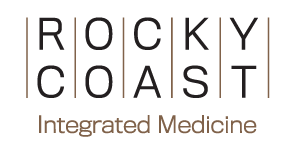Can Acupuncture Help Treat Neuropathy?
Neuropathy is a common problem that can be the result of injuries, incorrect posture, repetitive strain, certain types of infection, metabolic problems (especially diabetes), or degenerative autoimmune diseases such as rheumatoid arthritis. In all cases, there is some level of damage to the peripheral nerves, which are nerves that are not in the brain or spinal cord.
Most patients with neuropathy report symptoms including tingling, numbness, or burning pain in the affected area. The most common areas affected are the hands and feet, but peripheral neuropathy can impact the entire body, including the digestive and urinary systems.
Conventional neuropathy treatments include anti-inflammatory medications like ibuprofen or steroid injections in the affected area. Newer pharmaceutical options include non-SSRI anti-depressives (e.g. Clomipramine and Amitriptyline), and recent research is showing some promising results using anti-convulsants like Gabapentin.
In all cases, these pharmaceuticals can temporarily stop neuropathy pain, but they do not address the root cause of the problem and do not change any underlying conditions. All of these options carry the risk of unwanted side effects, in some cases very serious ones.
Because of this, many people are now turning to alternative medicines such as acupuncture for neuropathy pain.
Does Acupuncture Help With Neuropathy?
From a Traditional Chinese Medicine (TCM) perspective, neuropathy is typically seen as a symptom of qi and blood stagnation.
Blood in TCM is the substance that provides nourishment to every cell of the body. Qi is how the blood gets to every cell of the body (the motive force).
To illustrate this, consider a human body immediately before death and immediately after death. What is the difference? In TCM we say that there is no qi in the body after death. All the physical organs and blood are still there, but there is no more motive force to keep things moving.
Thinking about your body in those terms, it makes sense that numbness, tingling, and pain are what result when qi and blood can’t reach each cell of the body. The impacted areas are letting your brain know that a course correction is necessary.
Just as in conventional medical thought, qi and blood stagnation can occur as a result of injury, poor posture, overuse, infection, or metabolic disease. In TCM we also allow for long-term emotional stress as a possible cause of neuropathy pain.
No matter the cause, the goal of acupuncture therapy is to restore the free flow of qi and blood. This will bring qi and blood back to the obstructed area, stopping the neuropathy symptoms.
So how can we do that with acupuncture?
One of the most effective ways is through myofascial trigger point release.
Myofascial trigger points (commonly called “muscle knots”) are the result of muscle fibers getting twisted around from trauma or any of the above-mentioned causes. Healthy muscle tissue is organized in parallel rows, allowing for the muscle to expand and contract efficiently. When the fibers of the muscles get bunched up and taken out of this parallel arrangement, the flexibility of the muscle is reduced. If the flexibility of the muscle is reduced enough, the muscle can be drawn slightly out of place, impeding (or even occluding) the nerves that pass through.
The first way that acupuncture can relieve this type of neuropathy is by relaxing the impacted muscle. Using acupuncture, a skilled provider can trigger an automatic response in the muscle that relaxes the part that is bunched up and causing problems. This can take the immediate pressure off the nerve, affording some pain relief.
Acupuncture also relieves pain by altering the way that pain signals are perceived by the brain, and releasing chemicals called endorphins, your body’s natural version of morphine.
Finally, cupping therapy can be applied to the impacted area. This helps draw the blood that has been stuck in the constricted muscle into your body’s circulation. If you have ever seen an athlete with those circular bruises on their backs, then you have seen cupping. Interestingly, those bruises are not caused by the actual cups, in the sense that no one is hitting the athlete with a cup and causing a bruise. Rather, the purple marks you see are the old blood that has been caught in the contracted muscle. That’s why some places get very purple from cupping while others do not. Once this old blood is out of the way, the relaxed muscle can get flooded with new blood to prevent it from tensing up again.
Your acupuncturist can also show you stretches and exercises to help you relieve your symptoms between sessions. These stretches are often the key to a successful long terms treatment with acupuncture.
Pinched Nerve Treatments to Try at Home
Although acupuncture can help to relieve pain and inflammation, it is important that you continue to treat your neuropathy at home between sessions.
Try to rest as much as possible and avoid doing any activities that make your pain feel worse. Check your posture, especially if you sit at a computer for long periods. Your feet should be flat on the floor with your knees at a 90-degree angle and your back and neck straight. Your arms should rest comfortably on your desk with your elbows also at 90 degrees.
If you suffer from carpal tunnel syndrome, you can try using a support while you work or sleep. However, neck braces are no longer recommended for pinched nerves due to neck problems and it is considered best to keep moving and stretch regularly.
Many people also find that heat or ice packs help. Heat packs can relax the muscles surrounding your pinched nerve, while ice packs can reduce inflammation. Experiment with both and see which works best for you. Both heat and ice packs should be applied for 10–15 minutes, several times a day. If using an ice pack, wrap it in a towel first to avoid damaging your skin. If alternating between ice and heat, always end with heat.

